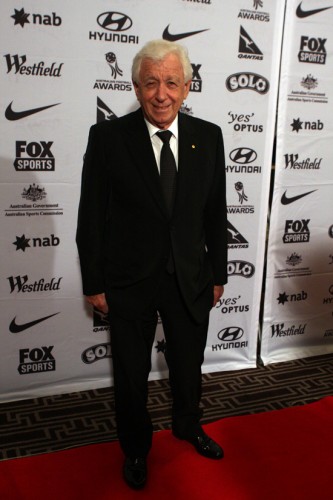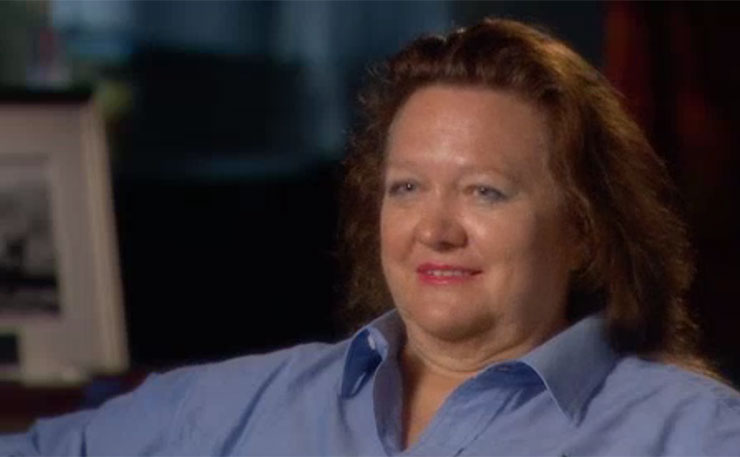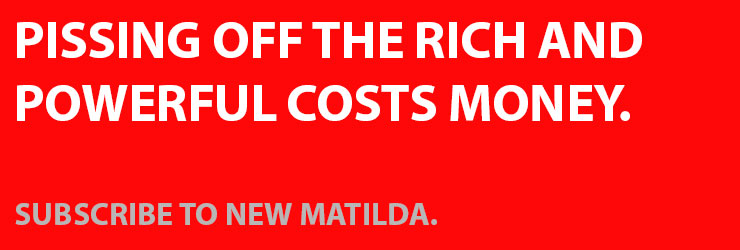A Fairfax investigation reveals Old Money playing a key role in framing a government law to wind back tax transparency, writes Ben Eltham.
Even by the standards of Australian lobbyists, the Family Office Institute Australia is a pretty shameless invention.
Combining four motherhood words in one omnibus title, the Family Office Institute appears on the face of things to be a membership organisation representing the interests of “family offices” – the name often given to the shadowy entities that manage the wealth and interests of some of Australia’s largest and richest families.
The richest families in Australia control vast wealth. Many of them maintain their own private secretariats for managing that wealth, and advancing their interests. A 2013 article for Business Spectator, Leon Gettler described family offices as “a private bank dedicated to managing your assets and the family business.” Research from industry body Family Office Connect estimated the wealth of Australia’s top 350 family offices at $226 billion in 2011.
The Family Office Institute’s submission to a Senate committee ended up forming the basis of a Senate report, and subsequent legislation, exempting wealthy families from disclosing their tax details.
Fairfax’s Heath Aston published a fascinating report yesterday looking into the mysterious entity. He revealed that “the institute was established in August by two lawyers and a Canberra lobbyist who represent Australia’s ultra-rich in disputes with the Australian Tax Office.”
Two of its three directors – Malcolm Stewart and Daniel Appleby – work for the low-profile law firm Speed & Stracey, a specialist tax advisory.
The firm, located on Macquarie Street in Sydney, boasts on its website of representing “a substantial number of BRW ‘Top 10’ and ‘Top 200’ individuals and their family and related … businesses”. But by far its biggest client is billionaire Frank Lowy and his family.
For the time being, the Family Office Institute Australia is starting small, and operating discreetly. The Institute has no outward-facing web presence. There is no plush office in Manuka, or high-profile policy director pushing the Institute’s ideas in the media.
It’s essentially a front for two lobbyists, Malcolm Stewart and Daniel Appleby, who are best known for their work defending the interests of Frank Lowy and his tax arrangements.

Why would well-heeled law firms representing high net worth Australians like Lowy be involved in Senate legislation?
The answer is that in December this year, the ATO will start to publish figures on the tax paid by large private companies, such as Gina Rinehart’s Hancock Prospecting.
Labor passed amendments to tax laws in 2013, with the aim to improving tax transparency and cracking down on trans-national tax evasion.
For the first time, private companies will be forced to publish their name, ABN, income and tax paid. Big family trusts managing $100 million or more will also be included in the figures.
You can see why some of these family companies would like to avoid scrutiny. The figures are likely to reveal that some companies pay almost no tax, despite billions of dollars of assets.
If this year’s public outrage at some of the tax dodges of multinationals is any guide, there could be some uncomfortable moments for the Rineharts, Pratts, Lowys, Packers and Stokes once the tax figures become public. Private companies are notorious for their opacity, and some wealthy Australians – Lowy most notorious among them – have plenty of form when it comes to tax avoidance.
But fear not, billionaires! The Coalition government of Malcom Turnbull (whose family assets are themselves thought to be worth more than $100 million) has been attempting to push through an amendment to current tax laws that will exempt private companies from such unwelcome scrutiny.
It’s called the Better Targeting the Income Tax Transparency Laws) Bill, and the Coalition’s Josh Frydenberg has been trying to coax it through the Senate for months.
Labor and the Greens oppose it, so Frydenberg’s best chance lies in convincing minor party senators. To that end, the Senate held an inquiry into the matter this year. As often happens in the Senate, the report of the Senate inquiry was really two different reports – a majority report by the government in favour of the amendment, and a dissenting report by Labor and the Greens slamming it.
Interest in the inquiry was not exactly intense: just nine submissions were made. But one of the submissions was by the Family Office Institute. It turned out to have quite an influence on the government’s report. The Coalition-written report on Better Targeting quotes from the Family Office Institute submission extensively.
The government report argued, quite openly, that more transparency is a bad idea. “The additional costs borne by private companies to provide explanatory materials within an environment of increased media attention would more likely impair public policy debate than enhance it,” the report states on page 15. Translation: it would be rather a shame if the media started reporting how little tax wealthy families actually pay.
In March, the government tried to argue that disclosing this information would leave wealthy families vulnerable to crime, even “kidnapping”. Quite apart from the notable lack of any such high-profile crimes in recent decades, the government was later forced to admit it had no evidence for the claim.
Not surprisingly, the dissenting report by Labor and the Greens mocked such fears. “The arguments being wielded clumsily in defence of this bill are absurd, illogical, and often lacking any evidence,” Sam Dastyari’s report reads. “This bill has few supporters, and the government is evidently doing the bidding of a tiny number of very wealthy individuals.”
But then again, very wealthy individuals are some of the more powerful people in Australia. The networks of figures like Gina Rinehart, Frank Lowy, Kerry Stokes and Harold Mitchell are extensive, and ramify across the political divide.
Mitchell, for instance, has recently funded an education think-tank that is now publishing evidence on educational inequality in Australia. Lowy controls Australian soccer and funds Australia’s most influential foreign policy institute. Stokes owns the Seven Network and Perth’s key newspaper. Rinehart owns ten per cent of the Ten Network and is thought to be a key backer of right-wing talking shop the Institute of Public Affairs.
Plutocrats like Gina Rinehart and Frank Lowy are the true elites of our society. They have extraordinary access to the top level of Australian politics, business and government, and it is clear that they have made their displeasure at the disclosure laws known.
So far, the Coalition has been only too happy to advance the interests of Old Money. With few in the general public even aware of the government’s attempts to wind back tax transparency for billionaire families, the fate of the bill will come down to a few cross-bench senators.
While it fights to keep the tax statements of the wealthiest secret, the Turnbull government is pushing ahead with its attempt to put a GST rise on the agenda. You couldn’t get a clearer demonstration of the Coalition’s priorities under the new Prime Minister.
Donate To New Matilda
New Matilda is a small, independent media outlet. We survive through reader contributions, and never losing a lawsuit. If you got something from this article, giving something back helps us to continue speaking truth to power. Every little bit counts.





